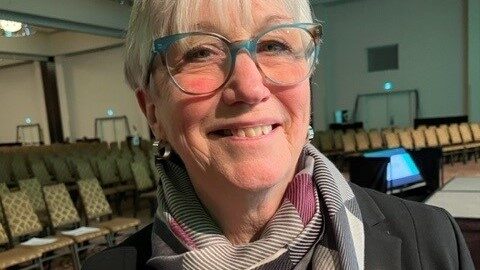New blood, new focus at ROMA
 Rural Ontario Municipalities Association (ROMA) Chair Robin Jones
Rural Ontario Municipalities Association (ROMA) Chair Robin Jones
The Rural Ontario Municipalities Association (ROMA) annual conference wrapped up in Toronto on Jan. 24, invigorated with new blood and a new focus.
The new blood was in the form of many newly elected mayors and councillors attending their first ROMA conference, as this was the first held since last year’s municipal elections.
The conference, attended by about 1,500 delegates, was also the first in-person ROMA gathering since the COVID-19 pandemic.
“The conference was a real opportunity to be together,” said Robin Jones, ROMA chair. “As important as virtual meetings are, there is nothing that can replace the impromptu meetings that happen at a conference between politicians and mayors, members of council, and of course the provincial government.”
It was also the first ROMA conference since the fall legislative session at Queen’s Park at which significant legislative changes affecting municipalities were enacted, including the More Homes Built Faster Act, 2022, formerly known as Bill 23, and the More Homes for Everyone Act, 2022, formerly Bill 109, both of which have drawn continuing concerns and criticism.
ROMA Breaking New Ground
The theme of the conference was “breaking new ground,” chosen because ROMA has undertaken a renewed focus on advocacy from the rural perspective.
“We picked that theme because it is new for ROMA to be getting so strong focusing on advocacy with the provincial government,” said Jones. “We know rural and we respect the fact that most of the decisions made at Queen’s Park are made by very learned, smart people but who are not living as our neighbours in very small, rural areas.”
Jones, Mayor of the Municipality of the Village of Westport, about 50 kilometres north of Kingston, said being “boots on the ground” in rural Ontario means ROMA has solutions that will help the government meet its objectives particularly with respect to housing.
“ROMA is advocating that things are different on rural Ontario,” said Jones.
For example, the ability to built new housing developments is dependent on sewage capacity. Building new capacity is expensive. But the experience of many rural municipalities is that the criteria for licensing sewage capacity is outdated in light of new, modern low-flow, low-flush plumbing installed in new homes. Re-examining the licensing criteria could mean more homes could be built in a rural municipality without needing an expensive and time-consuming environmental assessment and getting a new Environmental Compliance Approval (ECA).
“That doesn’t cost the province one dollar,” said Jones. “It’s a win-win.”
New Priorities, Advocacy
In the meantime, this ROMA conference can point to a couple of modest victories.
Municipal Affairs Minister Steve Clark made a couple of announcements at the bear pit session for provincial ministers.
First, the government will conduct a provincewide consultation on the effect of rail crossing maintenance on municipal finances. The government is also extending the deadline implementation projects under the Municipal Modernization Program.
The ROMA executive, which includes several new members, will meet in February and start setting new priorities for advocacy with the provincial government. “We will drill down after that,” Jones said. MW
✯ Municipal World Insider and Executive Members: You might also be interested in Greg’s other article: Municipalities driving the news agenda.
Greg Crone is Executive Editor with Municipal World.
Related resource materials:



